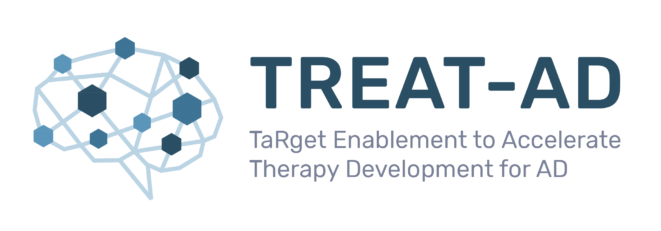National Institute on Aging Funds the Open-AD Drug Discovery Center
Collaborating institutions will lead development of openly distributed tools to test the efficacy of Alzheimer’s therapies and rapidly share results
SEATTLE, Oct. 1, 2019 – The National Institute on Aging, part of the National Institutes of Health, has awarded a $37 million grant over five years to establish the Open-AD Drug Discovery Center. Sage Bionetworks will take a leading role in this Center, joining investigators at Emory University, the Structural Genomics Consortium (SGC), Stanford University, Oxford University, and University of North Carolina. The grant, part of a larger $73 million effort to launch two Alzheimer Centers for the Discovery of New Medicines, funds the development and open distribution of chemical tools that support experimental evaluation of biological mechanisms thought to be involved in Alzheimer’s disease (AD).
“Through these centers, NIH will expand the use of open-science and open-source principles to de-risk novel drug targets with the goal of facilitating the development of new treatments for Alzheimer’s,” said NIH Director Francis S. Collins, MD, PhD.
Alzheimer’s Disease (AD) is a debilitating neurodegenerative disorder affecting an estimated 44 million people worldwide. With no clear understanding of disease mechanism, hypothesis-based AD drug discovery has proven to be a high-risk endeavor. Leading mechanistic hypotheses, such as the amyloid and tau hypotheses, have been pursued across industry, but there has been too little opportunity for collective learning and arguably too little diversity of commercial programs. The proprietary nature of drug discovery has also restricted the availability of tools, limiting the capacity for academic researchers to test these therapeutic hypotheses through their own studies.
The central goal of the Open-AD Center is to accelerate the development of new drugs for AD. The Center will be developing research platforms including early-stage screening of chemical compounds and other reagents for novel drug targets that will be openly distributed for the research community to perform in vitro, preclinical and clinical evaluation across a wide range of AD therapeutic hypotheses. It is designed to test the overarching hypothesis that open drug discovery will accelerate the development of AD medicines by catalyzing robust experimental evaluation of a series of complementary therapeutic hypotheses.
Throughout the drug discovery process, all output, including new molecules, will be made openly and rapidly available and without patents or any intellectual property restrictions. This novel and inclusive approach will enable scientists, clinicians, patients and families to engage in experiments without restriction on data sharing, so that results can be disseminated rapidly with anyone.
The Open-AD Center is led by co-principal investigators:
- Allan Levey, MD, PhD, Professor and Chair of the Department of Neurology at Emory University, Director of Emory’s Goizueta Alzheimer’s Disease Research Center
- Lara Mangravite, PhD, President of Sage Bionetworks
- Aled Edwards, PhD, Director of the Structural Genomics Consortium (SGC)
- Frank Longo, MD, PhD, Chair of the Department of Neurology and Neurological Sciences at Stanford University
- Opher Gileadi, PhD, Principal Investigator at Nuffield Department of Medicine, University of Oxford
- Stephen Frye, PhD, Director of the Center for Integrative Chemical Biology and Drug Discovery at University of North Carolina-Chapel Hill
- Haian Fu, PhD, Chair of the Department of Pharmacology and Chemical Biology at Emory
“Given the widespread aging of the U.S. baby boomer population, and current unsuccessful treatment approaches focused on amyloid and select other therapeutic targets, this substantial investment by NIA answers a critical and time sensitive need for a diverse portfolio of well characterized new therapeutic and diagnostic targets for Alzheimer’s disease,” said Dr. Levey.
“Open-AD builds on the existing open science infrastructure of the Accelerating Medicines Partnership in Alzheimer’s Disease target discovery program by developing and openly distributing reliable experimental reagents to advance the experimental validation of target hypotheses,“ said Dr. Mangravite. The Open-AD Center will build upon Agora (agora.ampadportal.org), the open platform for evaluation of AD targets derived from computational modeling in human disease that is led by Dr. Mangravite and her team.
“Open distribution of tool compounds supports the thorough evaluation of targets and their mechanisms using diverse inquiries across many research teams,” said Dr. Edwards, the head of the Structural Genomics Consortium. “This approach, which has been used for more than a decade by the SGC, works to rapidly de-risk targets and to advance biological knowledge.”
This is National Institute on Aging grant number U54AG065187.
